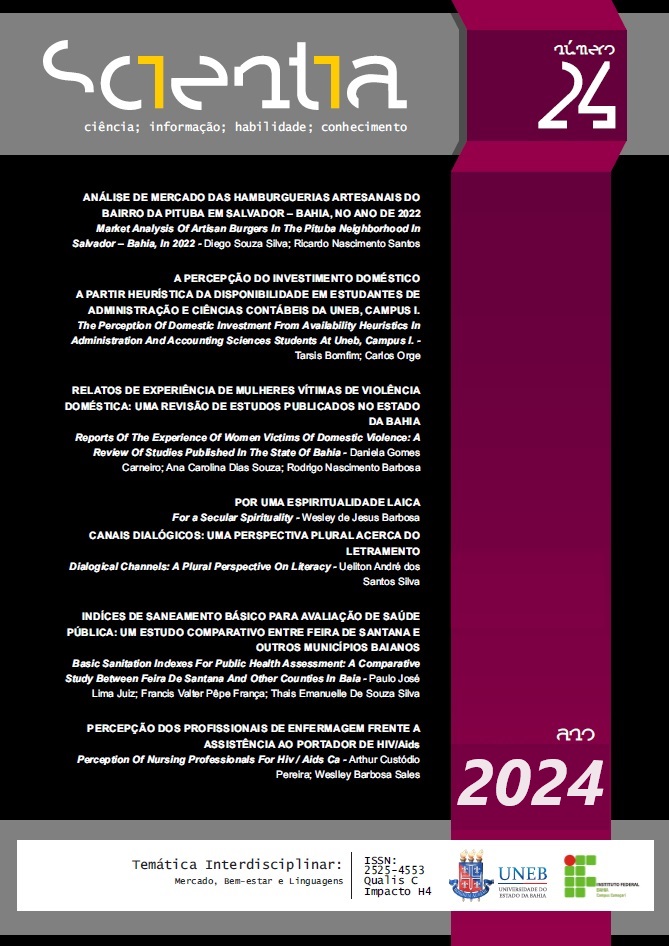INDÍCES DE SANEAMENTO BÁSICO PARA AVALIAÇÃO DE SAÚDE PÚBLICA: UM ESTUDO COMPARATIVO ENTRE FEIRA DE SANTANA E OUTROS MUNICÍPIOS BAIANOS
Abstract
Basic sanitation, also understood as a water supply network, sewage collection, adequate disposal of solid waste and urban drainage, is an integral part of a locality's urban infrastructure system. Many infectious and parasitic diseases have, among their main causes, a deficiency in the basic sanitation system. For many years, there has been a mismatch between population growth and the expansion of the basic sanitation system in several locations across the country. The municipality of Feira de Santana ranks second as the most populous municipality in the state of Bahia, with 619,609 inhabitants, according to data from the IBGE – Brazilian Institute of Geography and Statistics. In this scenario, the present study aimed to describe the coverage scenario of domestic sewage collection services and access to drinking water and its relationship with the number of hospital admissions due to infectious diseases in the county and in three other counties in Bahia - Salvador, Vitória da Conquista and Camaçari - through the analysis of a series of data from 10 consecutive years, more specifically, from 2010 to 2019, in order to prove that this relationship of indicatives is inversely proportional. Finally, it compared these indicators of Feira de Santana with those of the other selected counties. The research procedures comprised a bibliographic survey in different databases. As a result, a greater coverage of basic sanitation services and a decrease in the number of hospital admissions due to infectious diseases can be observed, representing an inversely proportional relationship in all counties. Compared to the other counties, Feira de Santana was the second city with the best indicators of basic sanitation, according to Instituto Trata Brasil, behind only Vitória da Conquista. With regard to infectious diseases, Feira de Santana had the highest number of hospital admissions due to dengue, indicating the population factor and the high circulation of people as probable justifications. In addition, it presented the second lowest number of entries for diarrhea. Therefore, there is a contrast between the lower proliferation of waterborne diseases and the expansion of sanitation services, obtaining a direct relationship between the factors - basic sanitation and infectious diseases.
Downloads
Downloads
Published
How to Cite
Issue
Section
License

This work is licensed under a Creative Commons Attribution-NonCommercial-NoDerivatives 4.0 International License.
A partir da submissão entende-se como automática a cessão dos direitos autorais para a Revista, uma vez tendo sido aprovado e aceito para publicação.
From the submission is understood as automatic the assignment of copyrights to the Journal, once it has been approved and accepted for publication.





